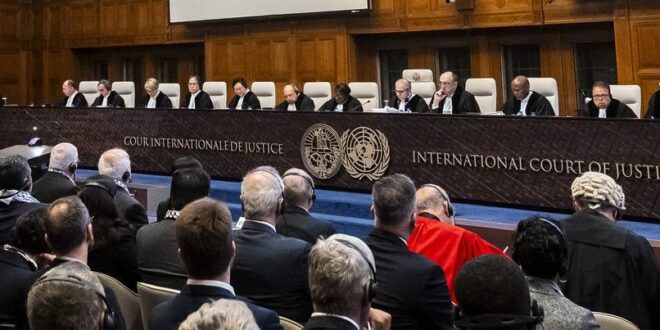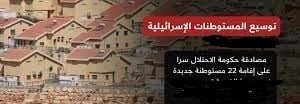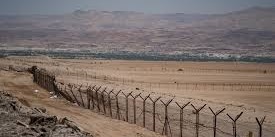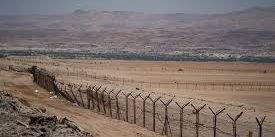By: Madeeha Al-A’raj
The National Bureau for Defending the Land and Resisting Settlements stated in its latest weekly report , that in a historic event, the International Court of Justice – ICJ issued on July 7, 2024 an advisory opinion on the legal consequences resulting from Israel’s policies and practices in the Palestinian territories occupied by Israel in 1967 aggression, including East Jerusalem. This fatwa was issued under a request by the United Nations General Assembly on Dec. 30, 2022
An excellence historical event for several considerations, as the court confirmed that all the Palestinian territories occupied since 1967 are one unit under Palestinian sovereignty, contrary to what Israel claims, and opiniom considered Gaza Strip as an integral part of the occupied Palestinian territories, and that it still remains under Israeli occupation. Israel’s actual obligations are in accordance with the rules of international law, which imposes legal obligations on Israel as an occupying power towards Gaza and its residents. The Fatwa also stressed that Israel must respect human rights treaties in the territories occupied since 1967, as all international agreements apply to it, including the 2 international covenants of 1966 ‘The International Covenant on Economic, Social and Cultural Rights, and the International Covenant on Civil and Political Rights’, and that Israel must provide compensation for the damage caused by its occupation of Palestinian territories.
In the Fatwa, the Court also affirmed that Israel’s settlement policy in the West Bank, including East Jerusalem, violates international law and that Israel’s transfer of settlers to the West Bank and Jerusalem, as well as its maintenance of their presence, contravenes Article 49 of the Geneva 4thConvention. It also deeply noted that Israel’s settlement policy is expanding, and also found that Israel’s use of Palestinian natural resources contravenes its obligations under international law as an occupying power.The Court condemned the confiscation of land, its allocation for settlement, the transfer of settlers, and the exile of Palestinians, in violation of the 4thConvention of 1949.
Besides, the crimes of the settlers and Israel’s failure to hold them accountable, control over the occupied territories, according to the court, must be temporary and its continuation amounts to annexation, and Israel’s confiscation of Palestinian lands and granting them to the settlers is not temporary and violates the Geneva Convention, and thus Israel has failed in its duty to protect the Palestinians from. Settler violence, meaning that Israel imposed its authority as an occupying power in a way that violates Articles 53 and 64 of the Geneva Convention, and that the deportation of Palestinians from their lands was forced and the detention of Palestinian property by settlers violates Israel’s international obligations.
The Fatwa also tackled the distinctive policy and legislation in the occupied territories and confirmed that Israel’s policy is structural discrimination and violates the prohibition of separation or apartheid as defined in the International Convention on the Prevention of Racial Discrimination, to conclude with Israel’s demand to end the occupation, stop the settlement and discrimination policy, restore the situation to what it was before 1967, and dismantle the settlements and the wall, as well as the return of those displaced since 1967, stresses the responsibility of the Security Council, the General Assembly, and the international community to enable the Palestinians to self-determination, and not to recognize Israeli actions since 1967, and stressed the need for Israel to adhere to the 4thGeneva Convention.
How the occupying state responded to the court’s fatwa! it initially objected the court’s deliberations. Before the hearings began in Feb. 2024, the Israeli government issued a statement saying that it did not recognize “the legitimacy of these hearings,” and described the move, initiated by the State of Palestine at the United Nations, as “an attempt by the Palestinians to dictate the results of the political settlement of the conflict between Israel and the Palestinians without negotiations. It refused to attend the sessions and contented herself with a written plea, while 52 countries expressed their opinions on the case, the overwhelming majority of which believe that the occupation is contrary to the law and calls on the court to consider it as such.
After the issuance of the fatwa, the ruling political circles in Tel-Aviv were angry. They denounced the fatwa, and Netanyahu rudely said that it is based on ‘lies.’ Adding the ICJ made a “false decision” after concluding that Israeli policies and practices “amount to annexation of large parts” of the occupied territories. The Jewish people cannot be considered occupiers of their historic homeland, and any wrong decision in the Hague won’t distort this historical fact.
Likewise, the legitimacy of the Israeli settlements in all the lands of our homeland cannot be challenged, Netanyahu claimed, ignoring the occupation practices, the laws of annexation, settlement expansion, and discrimination, and he even ignored his government’s claims in July of last year that the occupying state “has the right to impose its sovereignty on the West Bank and that the Jewish people have the exclusive right to self-determination on these lands.” As for the Minister of Finance and Minister of Settlements in the Ministry of the Army, Smotrichcalled for taking steps towards annexing the West Bank, and said on the we take it from the divine promise”! For his part, National Security Minister, Ben Gvir said, “The decision in the Hague proves once again that this is a political and blatantly anti-Semitic organization.”
The situation was different in a number of Israeli media, the fatwa came as a well-earned punishment for Israel. For many years, Israeli governments dealt with the occupied territories through obliteration, concealment, and deception. The repeated warnings are replaced by more arrogance and insolence. This can be seen in what is called the “Law of Settlement,” which is the “Law of Plunder.” Israel officially recognized that the settlements are not a private initiative, but rather a state project, which it worked diligently and openly to expand and imposed laws in the areas as if they were its property, thus disavowing the principles of temporariness and the possibility of retracting them.
At the same time, it denied the rights of the Palestinians to self-determination and ruled out negotiations with them. The Nationality Law raised Jewish settlement to the highest degree of legality, imposing sovereignty in the territories was one of the basic lines of the current government, and the military administration required by international law was replaced by the Civil Administration, and Smotrich was appointed to it. The whole picture is a waiver of even the simple formality of law enforcement towards the Jewish rioters, whom the power given to the extreme right turned into agents of the government in order to “cleanse” the areas of Arabs. In all these matters, it is as if Israel wrote this fatwa against it with its own hands.
International reactions were generally consistent with international law, with the exception of reactions in the United States of America, which, throughout its relationship with the occupying state, was keen to deal with it as an exceptional state above the law and above accountability and accountability. The United States criticized the advisory opinion issued by the court that the Israeli occupation of the Palestinian territories is illegal, and the US State Department said that “the fatwa of the Court of Justice will complicate efforts to resolve the conflict”!, while the High Representative of the European Union for Foreign Affairs and Security Policy Josep Borrell said, “The foreign ministers of the bloc countries will discuss what can be done about Palestine after the advisory opinion of the Court of Justice, and he explained that although this was an advisory opinion from the international justice system, it came from the highest legal body in the United Nations.”
Borrell commented on Netanyahu and his government’s rejection of the advisory opinion of international justice under the pretext that “there are historical reasons that make this their land,” saying: “You can interpret history however you want, but we are talking about international law,” adding that Netanyahu must respect international law, as it cannot be “ History is on one side and international law is on the other. Unfortunately, there is not a wide gap between international law and the reality on the ground as we are now, “to ask the Israelis not to continue building settlements.”
The most important issue in the International Court’s decision – from a practical standpoint – lies in the obligation that the fatwa imposes on international organizations and member states of the United Nations not to recognize the illegal situation or help maintain the situation resulting from the illegal Israeli presence in the Palestinian territories.
The fatwa stated that the reality of the occupation and its practices in Palestine impose a legal obligation on all countries regarding what is happening in Palestine. They must first not recognize any facts created by Israel in the territories occupied in 1967, and they have obligations to take measures to force Israel to respect international humanitarian law. The court considered this obligation binding on everyone
Moreover, the fatwa has a significant impact on the policy of countries, as it strengthens the legal and political positions against the occupation and the policies of its institutions, including the judiciary, and increases the pressure on Israel to end its occupation. The legal gains created by the court’s decision should not be viewed only from a legal perspective, but rather as a tool for political and diplomatic action to ensure the application of the law. Quite a few Israelis explained after reading the fatwa that the comparison between the International Court of Justice in the Hague and the Supreme Court in Israel deeply strikes the integrity of the judiciary in Israel in everything related to the situation of Palestinians under occupation, after the Israeli Supreme Court failed in everything related to the occupied territories and evaded from discussing the legality of the settlements, it effectively legitimized the systematic violation of international law.
Settlement is a fundamental obstacle to the settlement with the Palestinians, and a source of opposition to every such agreement. It creates two different statuses for people in the same place, superior and inferior, through prior waiver of equality, even before the law. The Supreme Court also did not stand in the face of the policy of demolishing homes and did not act. It remained silent to ensure that the rule of law prevails in the occupied territories, and all the while it used its reputation in international judicial circles as a shield for Israel’s retention of the territories and the settlement project.
Repercussions of this fatwa are many and dangerous, and estimated in many political circles that it could push a number of countries that are considered friendly to Israel towards tightening sanctions against people and organizations linked to the settlements in the coming days. Sources in Israel itself estimate that all countries that have so far imposed sanctions related to a number of settlers and settlement entities, including the USA,UK, EU, France, Canada, Japan, and Australia, will soon publish a new list of sanctions.
In addition, these sources estimate that other countries that have so far never imposed sanctions will join this process. In Israel, they link this to the steps and statements of the Minister of Finance, Smotrich, who, in his second position as a minister in the Ministry of Army, is working to advance the actual annexation of settlements in the West Bank. By the end of last week, media reported that the US administration discussed the possibility of imposing sanctions on Smotrich, and on National Security Minister, Ben Gvir.
An official American source explained that the decision has not been taken yet, but for some time they have been talking about it in the relevant ministries in the administration. “In the past, there was strong opposition to this idea in the White House. But now there are influential parties in the administration, who speak in a different way.” The EU, in turn, is now considering tightening steps against the settlements in the wake of the court’s decision in the Hague, as a senior European diplomat confirmed to the media that if the United States imposes sanctions on Smotrich and Ben Gvir, “the EU will not lag behind in this matter.”
As for the new British Foreign Minister, David Lamy, he warned last week during his visit to Israel and told senior officials in the Israeli government that Smotrich’s steps in the West Bank will increase the trend of sanctions against people and organizations that identify with the settlement movement. He also warned that the organizations that have been subjected to sanctions so far, such as “Lehava” and “Order 9”were just the opening salvo.
In connection with the advisory opinion of the International Court of Justice and the policy of the Israeli government, legislators in the occupying state were preoccupied last week with Palestinian antiquities to falsify the history, heritage and civilization of this country. In recent decades, settlers have discovered the power of antiquities as a means of seizing Palestinian lands and stripping people of their ownership and control.
Last week, a draft law was approved on first reading submitted by Knesset member Amit Halevy, granting powers to the Israeli Antiquities Authority to operate in West Bank as it operates in the territories of the occupying state. The draft law is considered an achievement of the extensive campaign launched by right-wing settler associations in recent years regarding archaeological sites in the West Bank. These associations do not care about damage to archaeological sites by settlers, as is the case with the new settlement “Nahal Helev”, which was approved last week as a UNESCO World Heritage Site near Bethlehem and linked to the stories of the Torah, just as is happening in Mount Ebal / Nablus in which the settlers discovered the altar of Yehoshua ibn Nun! and claimed that the site was deliberately disturbed by the Palestinians, which prompted Halevy to push forward with the draft law.
Archaeologists in Israel were terrified by the draft law and its impact on their standing in the world, which prompted the head of the Council of Antiquities in Israel, Dr. Guy Stiefel, to address the Israeli Minister of Heritage, Amichai Eliyahu, in a letter in which he said, “As the representative of Israel in the European Council of Antiquities, I can say that merely proposing the draft law, and nothing less than that if it is approved, will have ripple effects and cause international damage that cannot be estimated,” especially since the talk here is not only about Jewish antiquities, as has been claimed, but rather about harming sites that represent world heritage. Multicultural for all humanity,
List of Israeli Assaults over theLast Week Documented by the National Bureau:
Jerusalem:
- Forcing the Al-Qanbar family to self-demolish their home in the town of Jabal Al-Mukaber, to avoid paying heavy fines. They also demolished a commercial store, a vehicle showroom, and a retaining wall, and leveled land before notifying them of the demolition of a third facility in the town of Beit Hanina, and forced the citizen Khaled Al-Hroub to demolish two floors of his 4-storey house, in addition to forcing citizen Khalil Kabaja to demolish his 2-storey house under construction in the town of Al-Tur and garage in the Abu Tayeh neighborhood in the town of Silwan under the pretext of building without a license.
- Demolishing a wedding hall with an area of 800 square meters, retaining walls, sheep pens, and barracks in the town of Anata, in the southeastern area of the town in the neighborhoods of Al-Baik, Al-Najma, and Al-Fahidat, and the house of citizen Alaa Khaled Hilweh in the same area, consists of 2 floors and an area of 300 square meters, under the pretext of building without a license.
- Issuing a decision by the Supreme Court to evacuate 80 Jerusalemites from the Al-Rajabi, Ghaith and Shehadeh families who live in the Batn al-Hawa neighborhood in the town of Silwan for the benefit of the settlers, as the “Ateret Cohanim” settlement association claimed that it possess 5 dunams and 200 square meters in the “Batn al-Hawa” lands, belongin g to Yemen Jews since 1881, under the decision given the families 90 days to object to it in the Israeli Supreme Court.
Hebron:
- Attacking the village of Karma, south of Hebron, assaulting the property of citizens in the village, destroying several vehicles, and attacking a shop that sells vehicle parts. settlers also attacked the homes of the citizens of the village of “Sha’b Al-Batam” in Musafer Yatta and beat the citizens, causing the injury of Wadha Ismail Al-Najjar, 55, and the young man Anan Younis Al-Najjar, 38, caused bruises and wounds to them, and demolished the citizen’s house. Fadi Suleiman.
- Notifying citizens Mou’d Musa Sweiti and Awni Abdel Hadi Sweiti in the town of Beit Awa, to stop construction on their homes, and Rami Salama Sweiti not to build in an agricultural barracks, under the pretext that it was located in Area B”
Bethlehem:
- Demolishing 2 houses in the Al-Walaja village, belonging to the two brothers Mustafa and Mahmoud Rabah, each of which had an area of 70 square metres.
- Bulldozing an agricultural land in the Al-Sarj area at the entrance to the village, an area of one dunum, belonging to the citizen Amer Ibrahim Al-Araj, dozens of olive and almond trees were uprooted.
- Attacking a citizen from the village of Jourat Al-Shamaa while he was on his land in the “Beit Sawir” area adjacent to the “Alon Shivot” settlement, and beat him before cutting down a number of grape trees and destroying a quantity of their fruits. They threatened him that if he returned to his 40-dunam land, they will again attack him.
Nablus:
- Attacking citizens and foreign activists while they were on the lands of Qasra village for the purpose of plowing and clearing them of weeds. A citizen and a foreign activist were injured.
- Demolishing an industrial facility under construction in the town of Deir Sharaf, burned dozens of olive trees in the village of Madama, also burned olive fields in the village of Burin, causing dozens of olive trees to burn.
- Injuring 2 people in the town of Huwara, by settler who attack the town
Salfeet:
- Re-erecting tents on the lands of the town of Kafr al-Dik, west of Salfeet, in the Banat Bar area on the western side of the town, and raised Israeli flags in the area with the aim of seizing more citizens’ lands and expanding the “Beduel” settlement, 400 meters away from citizens’ homes. It is an agricultural area surrounded by olive trees, and the presence of settlers there poses a threat to the farmers’ lands, their property, and their freedom to care for, cultivate, and till the land.
- Storming the Islamic shrines in the Kafil Haris town, and performed Talmudic prayers and desecrated them.
Jordan Valley:
- Demolishing a house in the city of Jericho, in the “Airport” area, northeast of the city, belonging to the citizen Khaled Tarairah, with an area of 140 square meters and was inhabited by 12 people. They also demolished a sheep tent belonging to the same citizen.
 المكتب الوطني للدفاع عن الارض ومقاومة الاستيطان منظمة التحرير الفلسطينية
المكتب الوطني للدفاع عن الارض ومقاومة الاستيطان منظمة التحرير الفلسطينية




